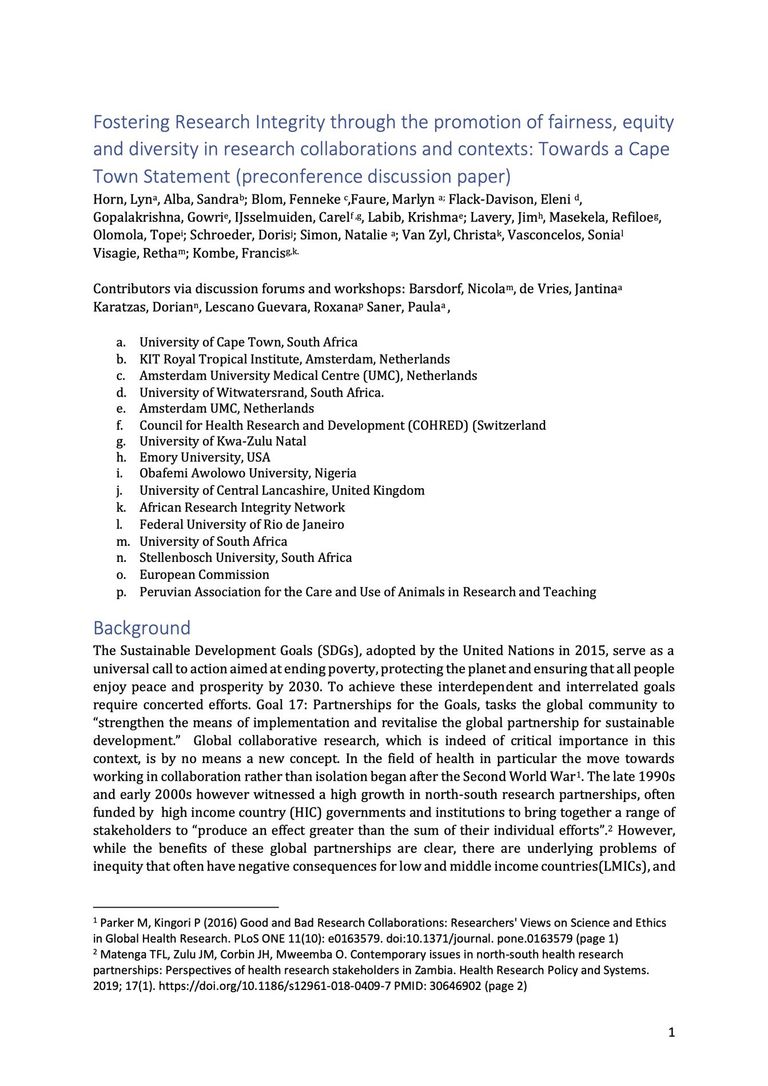Temi associati
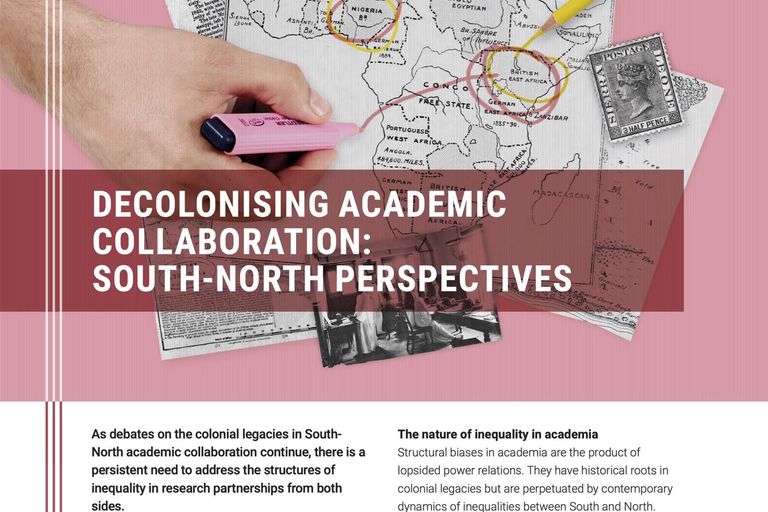
Decolonising academic collaboration - South-North perspectives
Decolonisation was originally intended as a revolutionary concept and approach, but contemporary debates, including in the global North, have arguably mainstreamed the concept of decolonisation. Indeed, one might ask whether the debate on decolonising academia itself has been colonised. This does not make decolonising academia irrelevant. On the contrary, it emphasises the importance of continuous attention to how structural imbalances of inequality are reproduced.
Ethics in Development Research
With this project, an interdisciplinary team of researchers aims to shed light on the dynamics and scope of ethical challenges as they pertain to research staff collecting data in low- and middle-income countries.
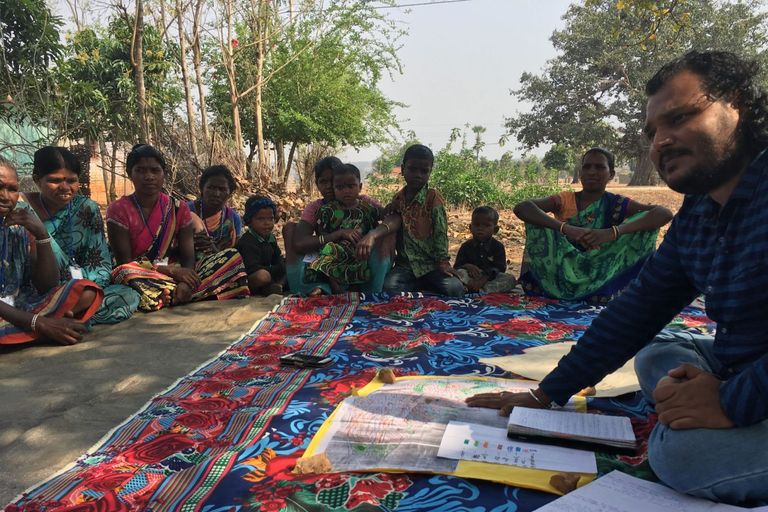
Some steps for decolonising international research-for-development partnerships
EADI Blog by Katarzyna Cieslik, Shreya Sinha, Cees Leeuwis, Tania Eulalia Martínez-Cruz, Nivedita Narain and Bhaskar Vira
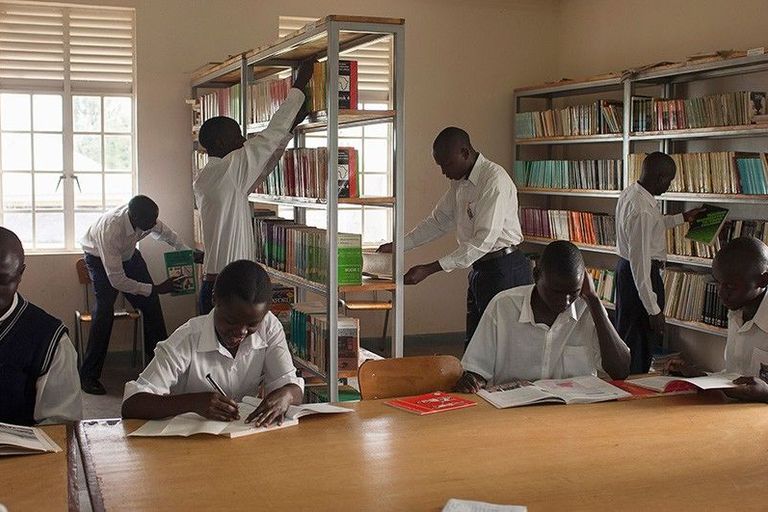
Masakhane MT: Decolonise Science
Many words common to science have never been written in African languages. Now, researchers from across Africa are changing that.
Immagine: Credit: Eye Ubiquitous/Alamy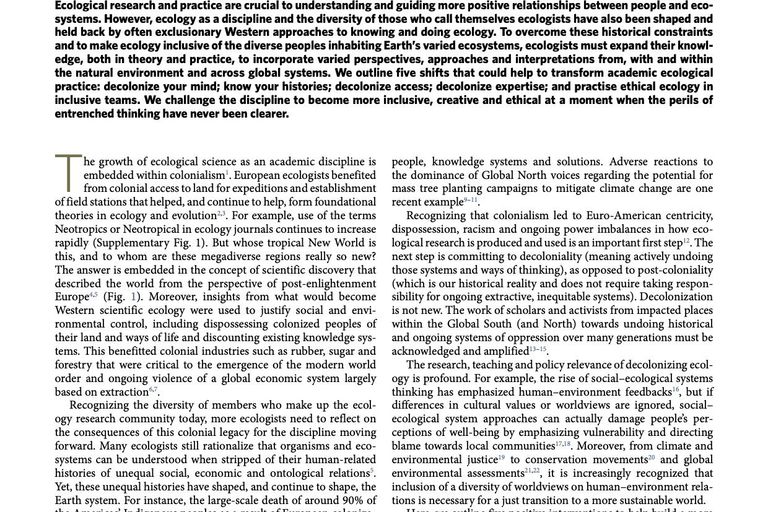
Decoloniality and anti-oppressive practices for a more ethical ecology
Christopher H. Trisos, Jess Auerbach & Madhusudan Katti
A Guide for Transboundary Research Partnerships (3rd edition - 2018)
Transboundary and intercultural research in partnership is a continuous process of sound knowledge generation, building mutual trust, mutual learning and shared ownership.
